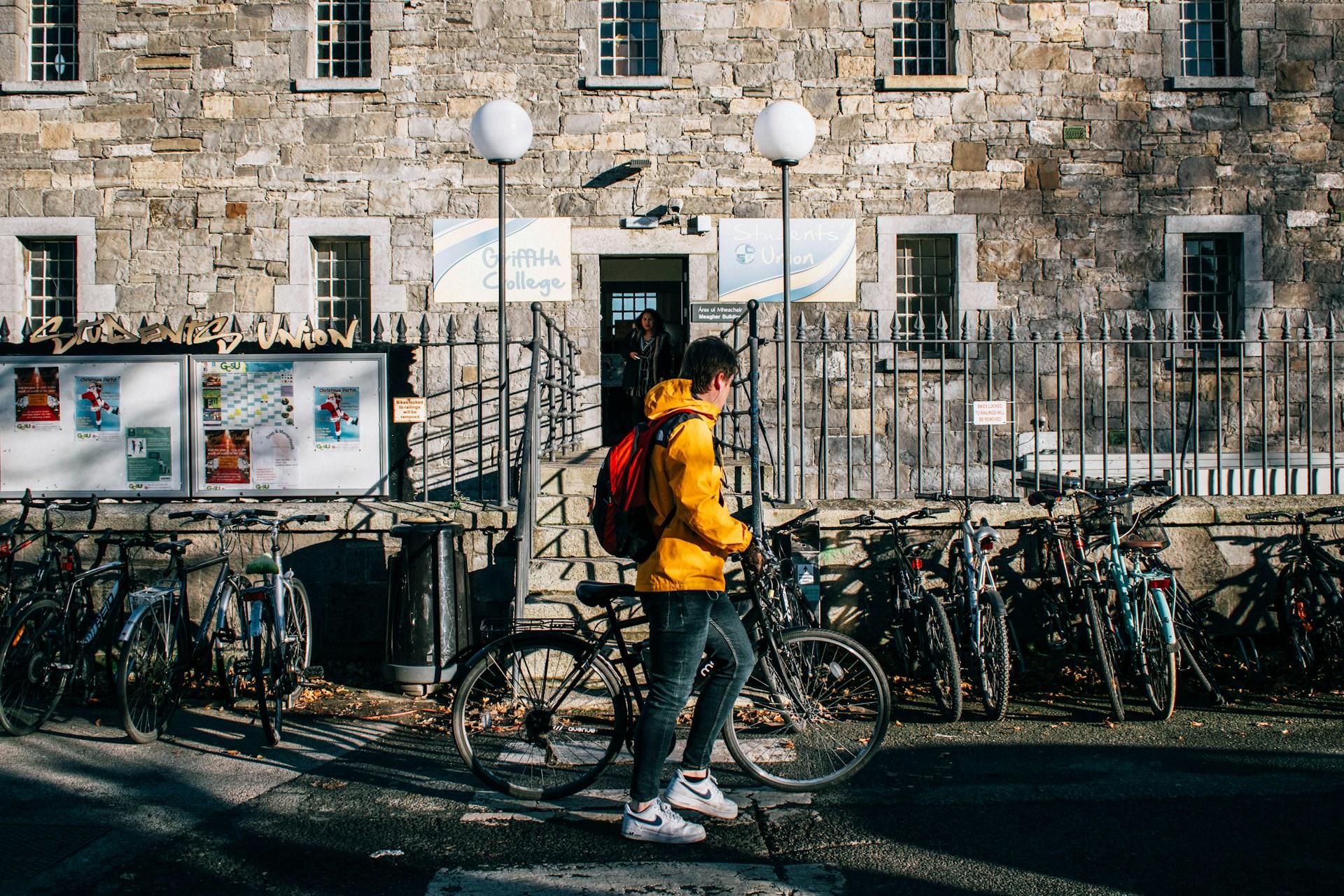For students in Ireland, an undergraduate bachelor's degree is free for Irish citizens, EU/EEA citizens, and Swiss citizens.
While this is certainly helpful for making university far more accessible for both Irish and some international students, scholarships and bursaries may still be necessary for some students.
Even with minimal fees, scholarships can still be helpful to ensure students end up on academic programmes as they mightn't necessarily be earning any money during their studies and a scholarship could be the difference between them going to university or not.
In other cases, funding could just be a helpful way for eligible students to enjoy some financial benefits while they're studying.
Fortunately for you, there are quite a few scholarships and bursaries available in Ireland so let's see what they are and how you can go about getting one.

The Steps to Getting a Scholarship or Bursary in Ireland
Before we explain in a general sense how to get a scholarship or bursary in Ireland, don't forget that every scholarship is different and may have a different application process.
Once you've found a scholarship that you'll be eligible for, make sure you check exactly what's required in the application.
Research the Different Scholarships Available in Ireland
Your first objective will be to look for scholarships. There are plenty out there and we've even included a few of them at the end of this article.
The Irish Government provides information on scholarships, but you can also find scholarships from private entities, through university websites, and by asking around.

Check That You're Eligible for the Scholarship
As you're looking at the various scholarships you've found for students in Ireland, be sure to check that they're available and that you're eligible for them.
While every scholarship has an application process that every student has to go through and there's some chance involved as to whether or not you'll be awarded, there are certain criteria to see if you're eligible or not.
Some scholarships are simply for undergraduate or postgraduate students so you'll know immediately whether or not you're eligible.
In other cases, there may be scholarships for certain kinds of students depending on their academic performance, background, etc.
Check all of this before you start applying.
Get Your Required Documents Ready
Once you have all the information you need and have seen that you're eligible, you should start looking for all the documents required to start your scholarship application.
You may be surprised at just how many documents are needed for some applications so it's better to get them together before you start your application as some of the processes can be quite long.
In many cases, you can save your application as a draft and come back to it or go over everything before you submit your application, but you should still try and have everything you need before you get started.
Ask for Your References
One of the requirements for scholarships may include academic or personal references. As these may take some time, especially if you're asking for a reference from a busy person who has a lot of references to do, we'd recommend that you ask for these as soon as you know who you'll need them from.
Plan Ahead
Whether you're applying for a scholarship as an Irish citizen or an international student, the application process can take some time and every student should consider planning.
The best time to start the scholarship process is as soon as you can. The deadlines for scholarship applications are potentially months before the academic year starts.
Just like applying to Ireland's best universities, you should start your scholarship application as early as you can!
Prepare Your Scholarship Application
In keeping with being prepared and planning, prepare your scholarship application. By this point, you should have done your research, found scholarships that you're eligible for, have all the required documents and references, and be ready to start.
Don't just apply for the scholarship. You need to prepare your application. Whether or not you get the scholarship will hinge on your application and if the requirements include something like a letter or an essay, you should plan that, too.

Take your time to make sure you've done everything right and that you'll have everything finished before the deadline.
Submit Your Scholarship Application
Once you've checked your scholarship application, gone over all the details, and edited and proofread your application essay (if one was required), you're ready to submit.
Check over everything one last time, including your eligibility, and make sure you've done everything you can to secure the financial support on offer.
Prepare for an Interview
Some scholarships may include an interview as part of the application process. If you've seen this during the application process and have been told that you'll be having an interview, make sure that you prepare for it.
You don't want to stumble at the last hurdle and miss out on a scholarship after a stellar application but a lacklustre interview!
Keep Track of Your Scholarship Applications
If you're applying for several different scholarships, be sure to keep track of each one and remember which is which!
After that, you may just have to wait and see.
The Different Scholarships in Ireland
To help you with the very first steps before you apply for scholarships, we've gathered a few different scholarships available in Ireland here for you to check out.
This isn't an exhaustive list, but it should be a good starting point for your research and give you a better idea of the bursaries, scholarships, and financial support available in Ireland for students.
1916 Bursary Fund
The 1916 Bursary Fund is a bursary from the Higher Education Authority (HEA) for students from backgrounds that are mostly under-represented in higher education. This includes students who meet Financial, Priority Group, and College Entry eligibility criteria.
Back to Education Allowance
The Back to Education Allowance is a kind of financial support for unemployed people, those living with a disability, or lone parents. For those receiving certain payments from the Department of Social Protection, certain types of education will receive the Back to Education Allowance.
All Ireland Scholarship Scheme
The All Ireland Scholarship Scheme awards a total of 125 scholarships a year across Ireland's 32 counties.
The scholarship is for students who have attended a non-fee paying school, have completed the Leaving Certificate Examination for the first time, are receiving a Student Universal Support Ireland (SUSI) grant, and are not receiving another third-level education scholarship.
Central Remedial Clinic Ciaran Barry Graduate Scholarship
Central Remedial Clinic Ciaran Barry Graduate Scholarship is a postgraduate scholarship that's worth up to €10,000 for students with a disability.
This scholarship applies to any discipline, but they are looking for proposals with a significant research component.
Erasmus+
This is the EU programme that supports exchange programmes between students across Europe and there are plenty of opportunities for students in the EU who want to study in Ireland as well as for students from Ireland who'd like to study abroad.
If you've been thinking about studying abroad, learning a foreign language, or enjoying new experiences, Erasmus+ could be a great option.
Don't forget that there are also study abroad programmes (complete with scholarships and bursaries) for outside of the EU, too!
Society of St Vincent de Paul Education and Training Bursary Fund
The Society of St Vincent de Paul Education and Training Bursary Fund provides grants to students whose financial situation makes third-level education and training much more difficult.
Postgraduate studies and private colleges are not eligible for their bursaries.
Student Assistance Fund
The Student Assistance Fund can be granted alongside a SUSI grant (more on that in a moment) and can be used to cover costs for things like materials, accommodation, food, travel, childcare, and medical costs for students.
It can cover many different things, but not education itself.

Student Universal Support Ireland (SUSI)
The Student Universal Support Ireland offers grants to school leavers and mature students. On the SUSI website, there's an eligibility checker tool available.
The Irish Refugee Education Fund
The Irish Refugee Fund provides financial support so that students in the asylum process can access further education in Ireland.
The Naughton Scholarships
The Naughton Scholarships are specifically for third-level engineering, science, and technology students at an undergraduate level, which are some of the best degrees available in Ireland.
They're currently worth €5,000 a year so either €20,000 for a four-year undergraduate degree or €15,000 for a three-year degree.

UVERSITY Higher Education Scholarships for Adult Learners
The UVERSITY scholarship is specifically for adult learners and empowers them to complete undergraduate degrees for the first time.
These scholarships are available for any subject or area of study but are not for school leavers.
The scholarships are worth between €5,000 and €7,500 depending on whether or not you have any dependent children.
Summarise with AI:











